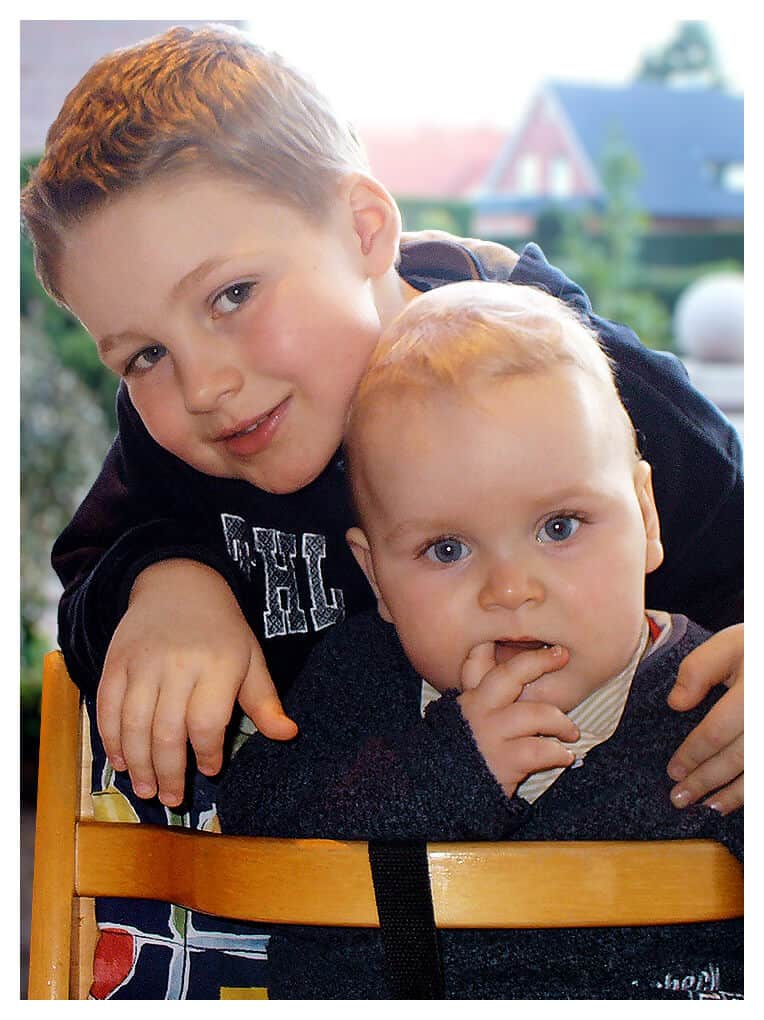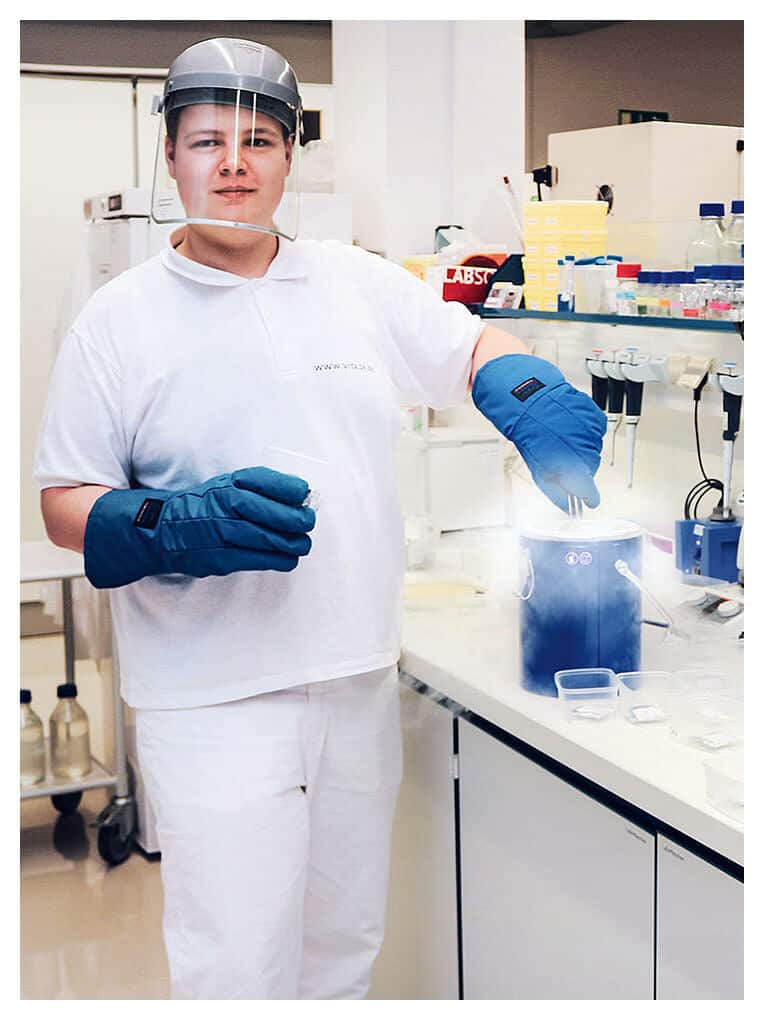Neonatal stem cells from umbilical cord blood and umbilical cord tissue are a real treasure. As "all-rounder cells", they are able to develop into different cell types and thus regenerate diseased or dead tissue. Umbilical cord blood contains a particularly large number of haematopoietic stem cells, which play a central role in the treatment of haematopoietic disorders and immunodeficiencies. In umbilical cord tissue, however, mesenchymal stem cells predominate, which develop into bones, muscles, tendons and cartilage in the organism. They therefore develop the body's supporting apparatus. In addition, these stem cells also develop into organic tissue, such as the heart muscle, kidney, liver and blood and lymph vessels.
Mesenchymal stem cells from umbilical cord tissue are particularly interesting for regenerative medicine. They are already being used in over 500 clinical studies worldwide. Classic fields of application are joint diseases such as arthrosis or rheumatism. Transplanting neonatal umbilical cord stem cells stimulates the formation of new cells in the body and repairs damaged tissue. Stem cell therapy could therefore perhaps even be an alternative to artificial joints in the future. Mesenchymal stem cells have also proven to be promising for autoimmune diseases. They are able to reduce rejection reactions of the immune system by intervening in a moderating way and helping to appease immune cells that overshoot the target.


















